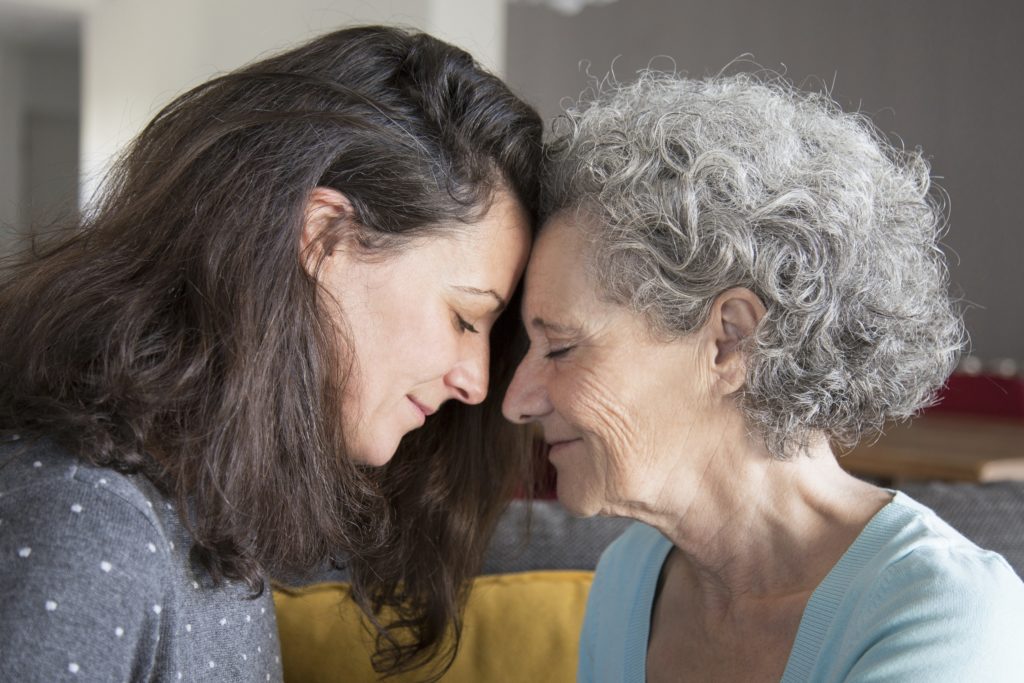
The Reality of Traveling Home for the Holidays
This holiday season, ViaQuest is also encouraging adult children to use this opportunity to check on aging loved ones they may not have seen in a while to determine how they are really faring on their own.
As adult children return home for the holidays they may be surprised by the reality of their loved ones’ well-being. Often, adult children will return home for the holidays and realize their elderly parents are not doing as well as they have been led to believe. For children who live far away and are unable to visit often, this realization can be alarming. Your parents may have reassured you that all is going well, when in reality they are having issues. If so, it is unlikely their goal was to mislead you, but only to keep from burdening you. Another reason for misleading reassurances is that older parents often find it difficult to admit that they may be declining.
If you have not been home for a while, take advantage of going home for the holidays to perform a reality check on how your parents are really doing. It may be distressing to realize that your parents are more fragile, less mobile, and weaker than they have led you to believe.
Indications Your Loved Ones May Need an Extra Layer of Support
Here are some things to look for that can be good indicators that your loved ones may need extra support.
Check medications
Make sure elderly loved ones have been taking and refilling any prescriptions. Check to make sure prescriptions are in date and that refills are available. Take time to make sure your loved ones understand the instructions for their medications and are taking them as directed.
Ask about doctor appointments
A recent study published in JAMA showed that more than 40% of people surveyed skipped doctor appointments during the early months of the pandemic. Check in with your loved ones about doctor appointments. Did they miss appointments last year? Are they still missing them now? When is the last time they were seen by their physicians? Are they getting their routine wellness checks, as well as care needed for any chronic illness? It may be a good time to schedule follow-up appointments during your visit or even a short Telehealth appointment to check in with their physicians. This can help you ensure that your loved ones have been getting the care they need, and also give you an opportunity to connect with their providers.
Scrutinize your loved ones’ appearance
Are they well groomed and generally clean? Are their clothes clean and weather appropriate? Is hair washed, neat, and combed? Any evidence of personal neglect could be a warning sign of dementia or issues with their ability to care for themselves. Also, keep an eye out for any unexplained and noticeable bruising, as this could indicate balance and mobility problems.
Examine the overall state of the house and the yard
Any signs of neglect, including spoiled food, piled-up mail, rust or obvious mold, or even just a general impression of uncleanliness could mean that your parents have become unable to complete basic household tasks.
Pay attention to how your loved one is acting
Are there any signs of cognitive impairment? Some indicators of this could be consistent memory lapses, rapid mood swings, the inability to continue a conversation, or apparent depression. Any of these behavioral changes could be an early warning sign of Alzheimer’s disease or another form of dementia.
Look for a change in habits
Do your parents seem less engaged or less playful with the grandkids? Are they sleeping more, or spending more time in a favorite chair? Did any favorite holiday traditions change? Do they seem less themselves? How are their appetites? Are they eating less? Are you noticing a marked weakness, or a loss of stamina or strength? Do they seem unstable or need support when they walk? Any of these can be signs of declining health.
Sometimes, a holiday reality check can be an alarming wake-up call, as you realize that your parents are not doing as well as they have claimed and may need some additional help. Ultimately though, it can be beneficial to realize this, so that you can get your elderly loved ones the proper care that they need.
This holiday season, we encourage you to perform a holiday reality check on your aging loved ones to ensure they are living safely and comfortably — and, if not, to determine a comprehensive and beneficial plan of action.
If you do decide that your loved ones need an extra layer of care, ViaQuest can bring an extra layer of care and support. Our care is focused on sustaining and maintaining your loved ones’ quality of life in their home — keeping them safe and comfortable. ViaQuest Hospice can help determine if such care is appropriate for your loved one. Call us today to learn more: 855.298.1722.




